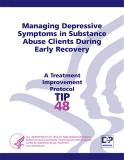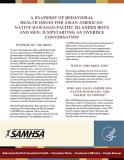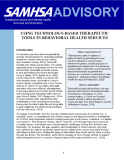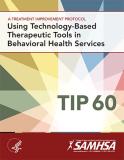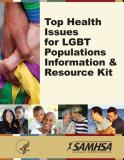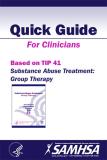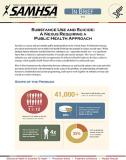
This brief highlights the relationship between substance use and suicide and gives an overview of the issue. It describes for state and tribal prevention professionals evidence-based programs that focus on substance use and suicide prevention.
Units per Product
Download
In Brief: Substance Use & Suicide
File Type: PDF
File Size: 870 KB


